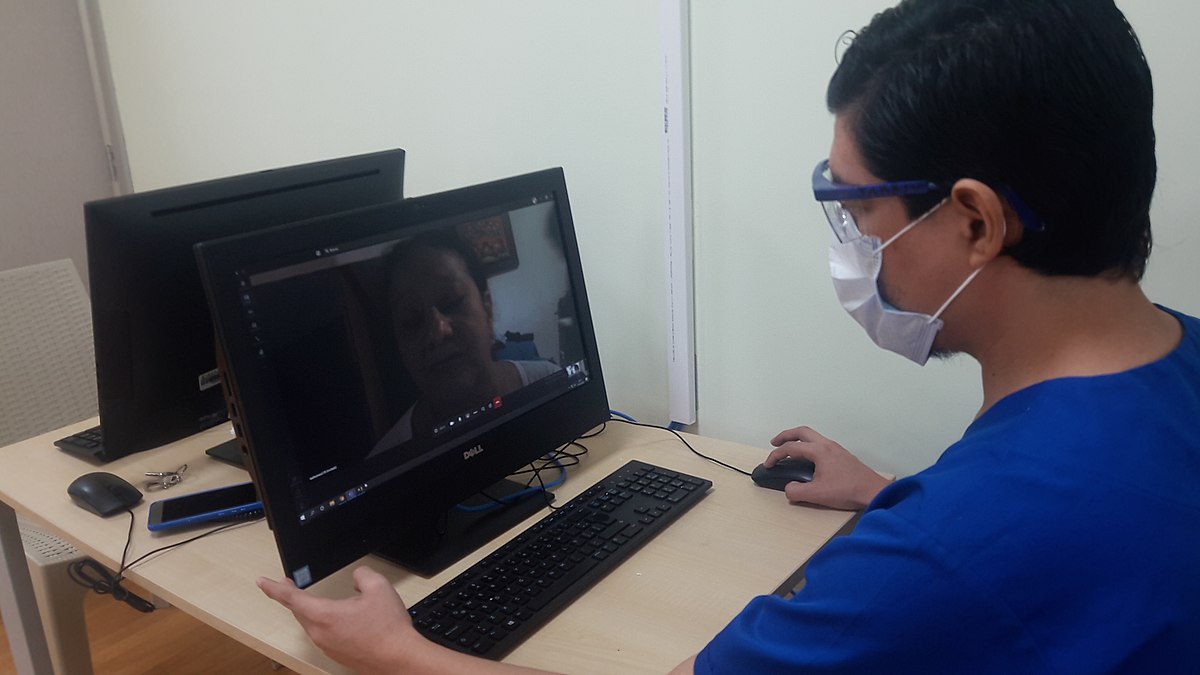
- Details
- By Chuck Hoskin Jr
Guest Opinion. One of my most urgent priorities as Chief of the Cherokee Nation has been combatting the opioid epidemic. The opioid industry flooded Cherokee communities with these dangerous drugs. Overdose deaths more than doubled among Cherokee citizens between 2003 and 2014, and the fallout strained many of our tribal services, including clinics and emergency rooms, law enforcement and child welfare.
In 2017, we were the first tribe in the nation to file a lawsuit against the opioid industry, and our $100 million settlement from that lawsuit is now being invested in addiction care. The goal for these funds is to make treatment easily accessible, without judgment or unnecessary barriers, for every Cherokee who needs it.
That’s why I was disturbed to see a new proposed federal regulation that would increase barriers for some of our most vulnerable patients. The proposal by the Drug Enforcement Administration would prevent telemedicine doctors from prescribing controlled substances such as buprenorphine, a lifesaving medication for those struggling with opioid addiction. Without an in-person appointment, the proposed rule limits prescriptions of buprenorphine to a single 30-day supply. This change poses a severe risk to our citizens, especially those living in rural areas with limited access to transportation and resources.
Telemedicine, the practice of connecting patients and medical professionals via phone and video calls, has been essential for reaching patients. New flexibilities for telemedicine were allowed during the COVID-19 public health emergency. However, with the emergency declaration expiring, some regulators are now attempting to make telemedicine more restrictive and less convenient.
This makes little sense. Over the past few years, telemedicine has proven to be an extremely valuable and successful way to provide care, especially for behavioral health issues like addiction. It reduces waiting times for an appointment and increases flexibility for patients and providers alike.

For example, many of our patients newly in recovery have recently found employment. Telemedicine appointments, which can be as short as 15 to 20 minutes, allow them to continue working and receive essential treatment during their breaks. Without this option, patients may be forced to take hours off work, jeopardizing their recovery journey.
Quick and easy access to a buprenorphine prescription is especially important in the early days of recovery. Buprenorphine can ease opioid withdrawal symptoms while blocking the ability for other opioids to cause an effect. But if a patient’s buprenorphine access is disrupted, they face a very high risk of falling back into addiction with far more dangerous substances.
The DEA's intention to catch over-prescribers by requiring an in-person appointment is misguided, as there is no evidence that a single in-person visit would reduce any misuse of buprenorphine. Unscrupulous over-prescribers will continue to find ways to exploit the system. Meanwhile, this additional hurdle inconveniences everyone.
Access to telemedicine is a lifeline for many Cherokees, and we must protect it to keep up the fight against the opioid crisis. Cherokee Nation is among thousands of voices across health care and addiction recovery communities who are speaking out against this proposed rule. You can join us by writing to your members of Congress and President Biden.
Chuck Hoskin, Jr. is the principal chief of the Cherokee Nation.
More Stories Like This
Jesse Jackson Changed Politics for the BetterNative News Online at 15: Humble Beginnings, Unwavering Mission
From the Grassroots Up, We Are Strengthening the Cherokee Nation
Friday the 13th: When Superstition Proves More Powerful Than Law
Congress Must Impose Guardrails on Out-of-Control ICE
Help us defend tribal sovereignty.
At Native News Online, our mission is rooted in telling the stories that strengthen sovereignty and uplift Indigenous voices — not just at year’s end, but every single day.
Because of your generosity last year, we were able to keep our reporters on the ground in tribal communities, at national gatherings and in the halls of Congress — covering the issues that matter most to Indian Country: sovereignty, culture, education, health and economic opportunity.
That support sustained us through a tough year in 2025. Now, as we look to the year ahead, we need your help right now to ensure warrior journalism remains strong — reporting that defends tribal sovereignty, amplifies Native truth, and holds power accountable.
 The stakes couldn't be higher. Your support keeps Native voices heard, Native stories told and Native sovereignty defended.
The stakes couldn't be higher. Your support keeps Native voices heard, Native stories told and Native sovereignty defended.
Stand with Warrior Journalism today.
Levi Rickert (Potawatomi), Editor & Publisher

